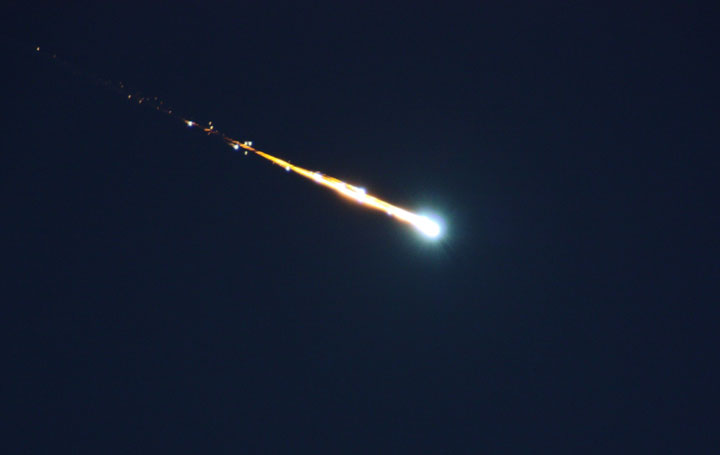TORONTO – The reports of a bright meteor in the Montreal and Ottawa region set social media buzzing Tuesday night, but unfortunately, instruments that are set up to capture such events weren’t able to catch the meteor.

READ MORE: Possible meteorite strike in Quebec
Several people in Quebec and near Ottawa reported seeing a bright fireball, followed by a loud sound. Some people even reported feeling the ground shake.
However, Brown said, “Our sound systems did not detect the shock from it, which is not surprising: the wind was in the wrong direction.”
Strike two.
Even though meteors may be spotted in one location, they travel across a large swath of sky. That’s why reports often come from a wide area hundreds of kilometres around.
In this case, reports of the meteor even came in from New York state.
“There are accounts even from airline pilots who saw it from above the clouds and, from their description, there’s no doubt it was a bright meteor,” said Brown.
“The sound is consistent with what you get from a fireball that penetrates pretty deep into the atmosphere.”
Western University has a dozen all-sky cameras around southwestern Ontario. They range as far south as Windsor, north to Collingwood as well as east to the Toronto and Kingston areas.
But unfortunately, due to the storm that passed through the area on Tuesday night, the cameras were clouded out.
The American Meteor Society encourages people to report meteor sightings, which helps them chart the path of such objects. This event was reported by just two people, however: one in Quebec and one in New York state. (If you witnessed the event, you are encouraged to report it to the society.)
Meteor, meteorite or meteororid?
Oftentimes, the words meteor or meteorite are used to describe something that we see streaking across the sky. But there is a difference.
Meteoroids are small chunks of rock and debris in space. If those happen to enter our atmosphere and break up, they are meteors. But, if they reach the ground, they’re called meteorites.
So, how big was it? And why did it make a sound?
“The main thing is it has to penetrate below 40 km in altitude,” Brown said. “And it was likely larger than a few kilograms.”
Brown said that the meteor could have broken up, producing meteorites, but it may be difficult to find them.


Comments